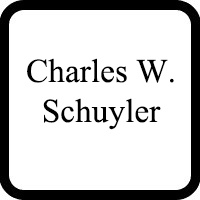Milltown White Collar Crime Lawyer, Montana
Sponsored Law Firm
-
 x
x

Click For More Info:
-
Stevenson Law Office
1120 Kensington Ave. Suite B Missoula, MT 59801» view mapCriminal Defense When You Need To Talk To Someone You Trust
From the beginning of your case, to the end, Stevenson law office guarantees skillful and diligent courtroom advocacy.
800-906-0680
Not enough matches for Milltown White Collar Crime lawyer.
Below are all Milltown Criminal lawyers.
Mathew Stevenson
✓ VERIFIEDCriminal, DUI-DWI, Divorce & Family Law, Personal Injury
Stevenson Law Office was established by Mathew Stevenson in 2002 and has been serving Western Montana since. Mat Stevenson is a Montana Native, bor... (more)
Charles W. Schuyler
✓ VERIFIEDCriminal, Accident & Injury, Estate, Real Estate, Business
Chuck Schuyler was admitted to the bar in 1975, Montana and U.S. Supreme Court, is a graduate of the University of Montana (B.A. 1969, J.D. 1975) and ... (more)
Andrew J. Ries
Juvenile Law, Other, Criminal, Constitutional Law
Status: In Good Standing Licensed: 31 Years
Leta J. Womack
Juvenile Law, International Other, Family Law, Criminal
Status: In Good Standing Licensed: 43 Years
Erica Grinde
Criminal, Whistleblower, Federal Trial Practice, Health Care Other
Status: In Good Standing
Erika R. Peterman
Criminal, Household Mold, Federal Appellate Practice, Civil Rights
Status: In Good Standing
 Mathew Stevenson Missoula, MT
Mathew Stevenson Missoula, MT AboutStevenson Law Office
AboutStevenson Law Office Practice AreasExpertise
Practice AreasExpertise


